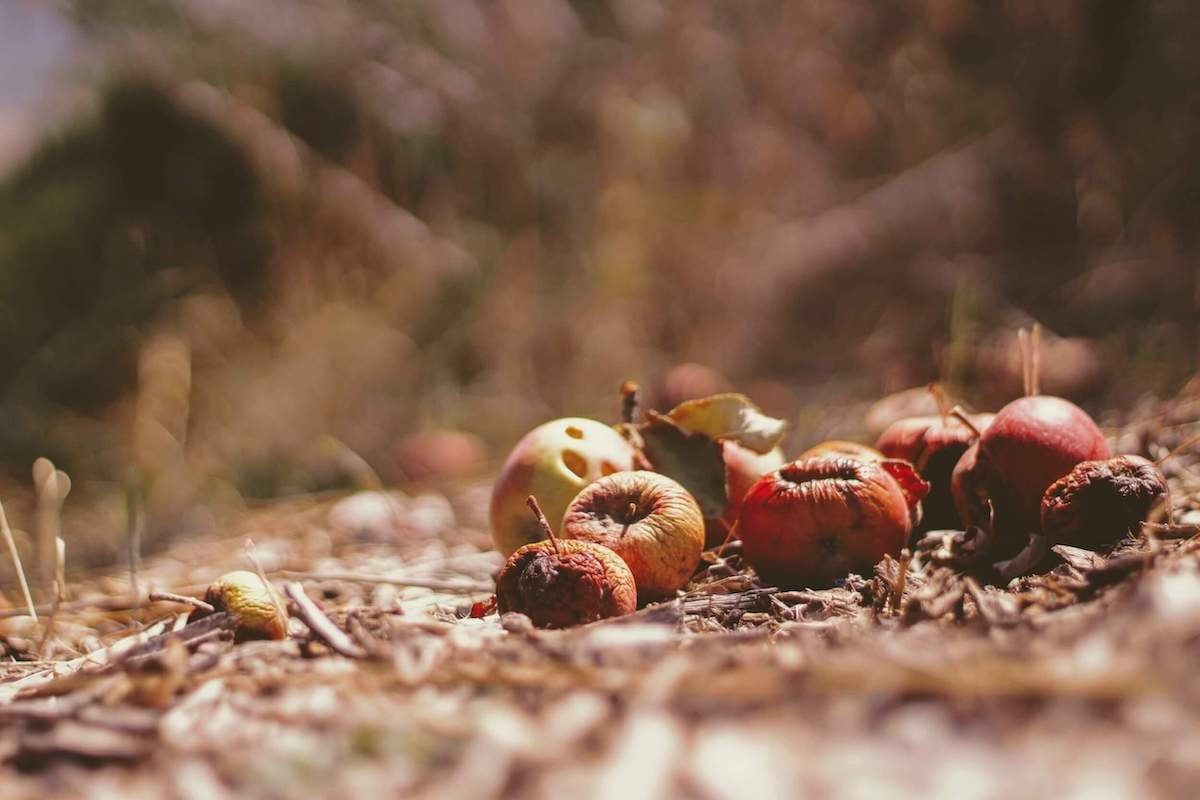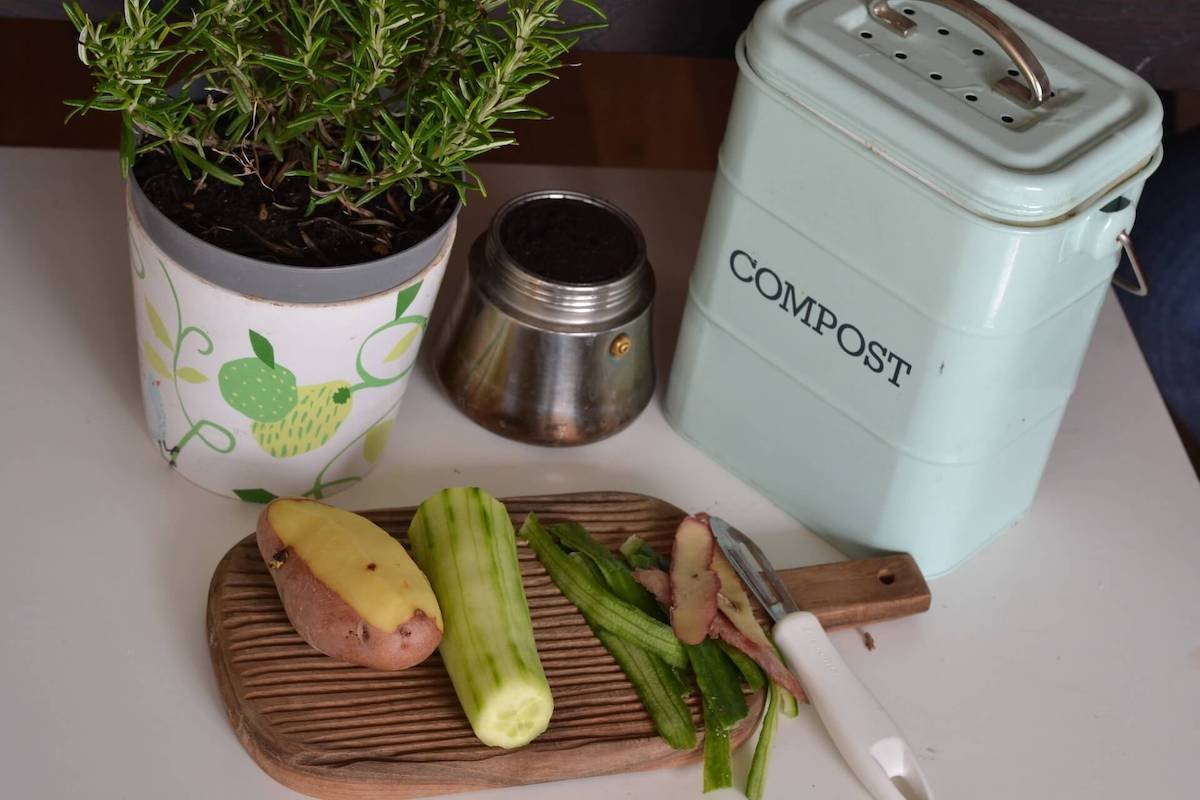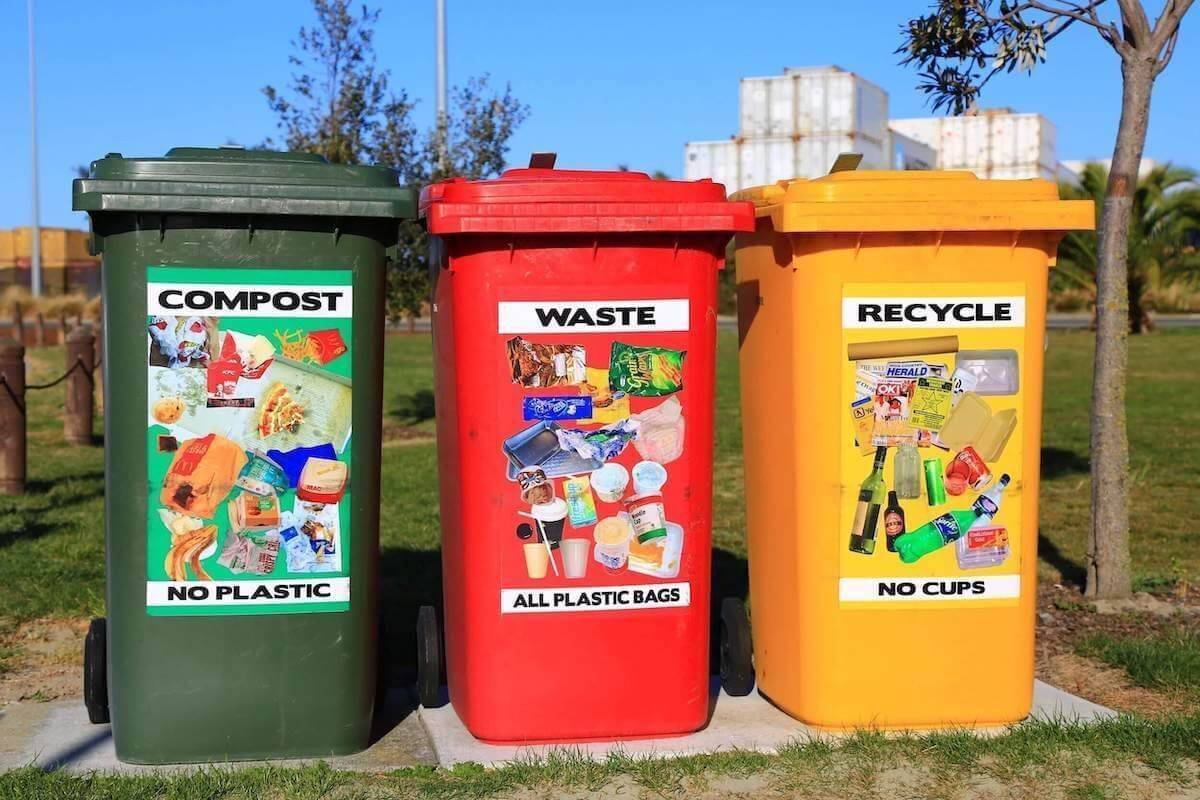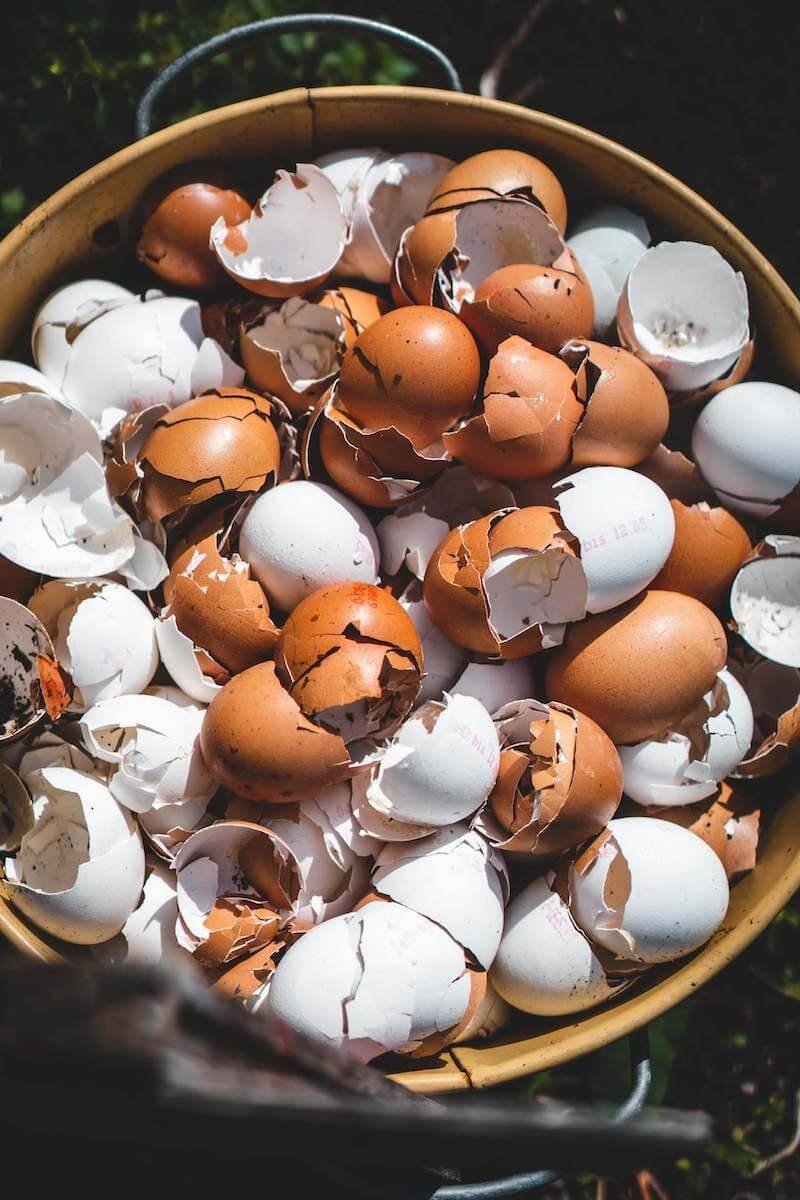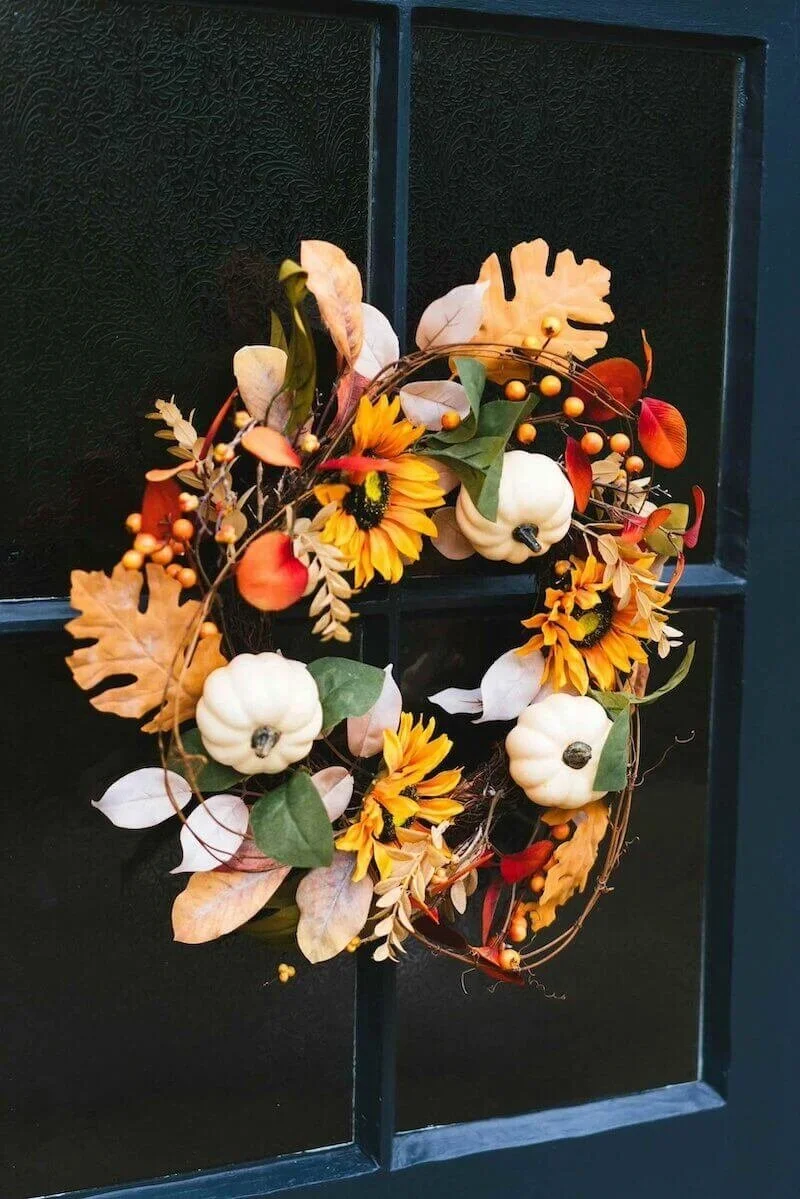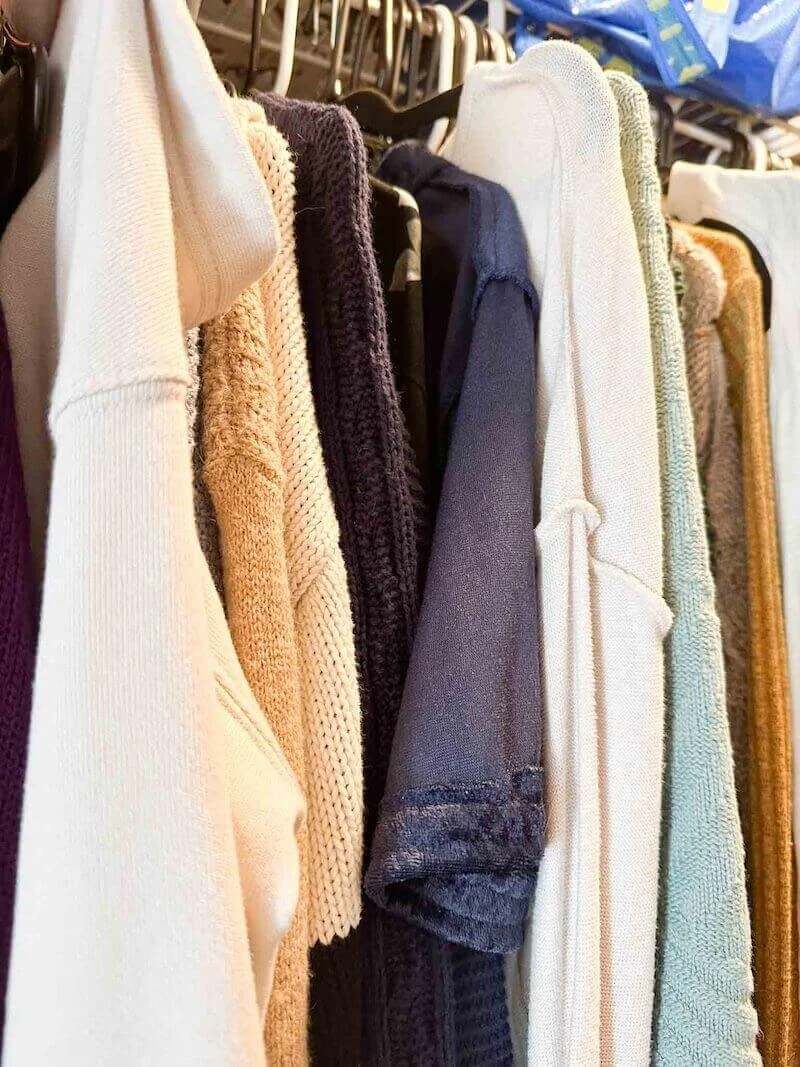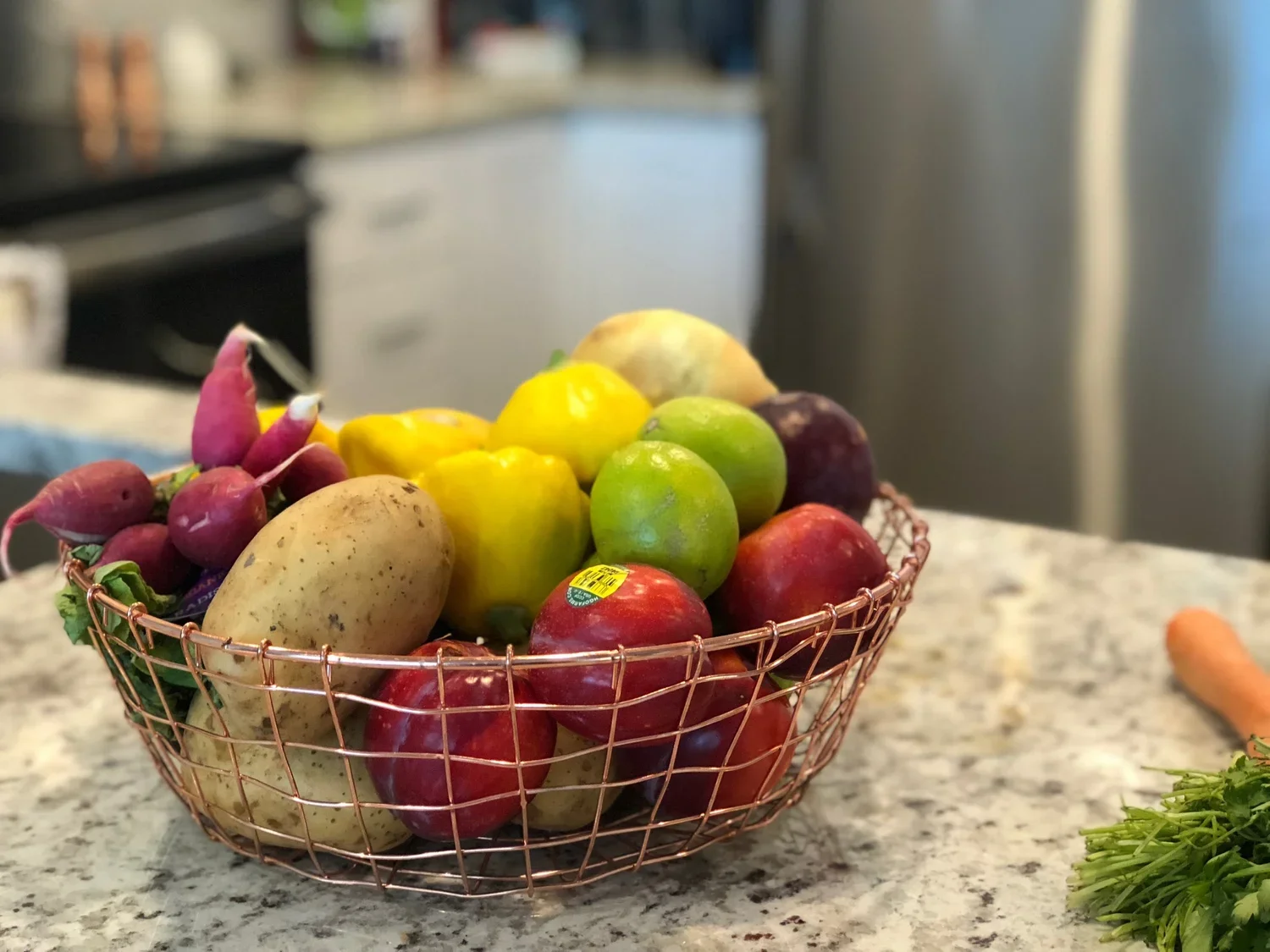The Ultimate Guide to Composting at Home: What It Means & How to Do It
It’s time to get serious about reducing our waste! Let’s talk about composting. This guide features a breakdown of what composting means, the environmental benefits of this practice, and different ways you can compost depending on where you live.
What Does it Mean to Compost?
Basically composting is recycling your food scraps! NRDC (Natural Resources Defense Council) defines composting as “the natural process of recycling organic matter, such as leaves and food scraps, into a valuable fertilizer that can enrich soil and plants.
Composting Art by Blushing Planet
Anything that grows decomposes eventually; composting simply speeds up the process by providing an ideal environment for bacteria, fungi, and other decomposing organisms (such as worms, sowbugs, and nematodes) to do their work.
The resulting decomposed matter, which often ends up looking like fertile garden soil, is called compost. Fondly referred to by farmers as “black gold,” compost is rich in nutrients and can be used for gardening, horticulture, and agriculture.”
Composting is the most responsible way to discard our food scraps...and other products. We’re seeing more compostable packaging & items as the benefits of reducing waste through compost has become more popular.
Environmental Benefits of Composting
Unfortunately when our food scraps end up in a landfill, this can create methane gas which contributes to climate change and global warming. Landfills are the third-largest source of human-related methane emissions in the United States, accounting for approximately 15.1 percent of these emissions.
It’s estimated that organic materials such as paper products, yard trimmings, and food waste make up 55 percent of municipal solid waste (MSW). That’s a lot!
Imagine if all of that was composted instead? If our food scraps are composted and the compost is treated properly, this produces less methane gas coming from the landfills.
Here's a more thorough explanation of how composting combats the climate change crisis, AND benefits our environment in general:
First, landfilling food scraps produces 20x more methane vs composting. And when compost is used in our soils, compost’s net emissions become negative!
Next, compost enhances soil quality. It helps to grow healthier and more nutritious plants and food. Using compost reduces the use of synthetic nitrogen and fossil fuel intensive fertilizers.
Also, our soils hold 1.5 trillion tons of carbon in the form of soil organic matter. By applying compost to soil, you can increase the soil's carbon holding capacity. Just 1 acre amended with compost can sequester up to 75% of a car’s annual emissions.
Finally, Community Composting builds community resiliency through local jobs, environmental education, community bonds, exercise, and social empowerment.
More Overall Benefits of Composting
The EPA reports compost can be used to remediate soils contaminated by hazardous waste in a cost effective manner.
Composting Council reports that in addition to helping to manage stormwater, compost can also conserve water due to its ability to retain and efficiently transfer water.
Helps cut down greenhouse gases entering the atmosphere
Promotes healthy plant growth
Consumers can reduce the amount of wasted food & feed the Earth! It’s a win, win!
Running your own compost is also great for your budget and can save you AND your community money in many ways.
Save on contamination cleanup. Your local government typically gets rid of your trash by burning or burying it through incineration and landfills, which releases dangerous and costly toxins into the air that then cut into their budget.
Cut waste management costs. Transporting the large amount of waste we make to proper disposal facilities is one of the biggest expenses we impede!
Small businesses can benefit in a similar way by saving money in these same areas! Just like bigger corporations and governments, small businesses have to allot a portion of their annual budget for waste disposal. Composting not only reduces those costs, but also helps them improve their carbon footprint as a small business - who doesn’t love that?
YOU save on garbage pickup! Most households pay a pretty penny for weekly waste pickup - while it still costs money to have your compost picked up, it’s substantially cheaper than the cost of traditional waste management disposal.
YOU get a free natural weed fighter! Incorporate handfuls of compost throughout your garden or wherever you’d normally spray synthetic weed killer - yes, this also means you save money by not buying that, too!
Compost acts as a free, chemical-less fertilizer! It’s packed with natural nutrition, enhancing any greenery growth.
Grow veggies at home instead of buying them at the store! Start a home veggie garden featuring some of your frequent grocery purchases. Use the compost to support its growth, AND use those food scraps to make more compost in the future.
Composting is often associated these days with being costly to maintain. That's not the truth! There are countless budget-friendly ways to make composting work for YOU, between options noted in this post and other techniques you can find with easy research.
What Does the Compost Process Look Like?
The EPA breaks composting down into a few steps
Combining organic wastes, such as wasted food, yard trimmings, and manures, in the right ratios into piles, rows, or vessels.
Adding bulking agents such as wood chips, as necessary to accelerate the breakdown of organic materials; and
Allowing the finished material to fully stabilize and mature through a curing process.
Mature compost is created using high temperatures to destroy pathogens and weed seeds that natural decomposition does not destroy.
What a Compost Needs to Thrive
Your compost needs four key ingredients to survive and thrive. Those are water, air, nitrogen, and carbon. The key to making good compost is creating the right mix and ratio of materials.
Follow these great tips from Planet Natural highlights these ingredients to and how to successfully incorporate each to in a way that will make your compost process thrive!
Nitrogen (Greens)
Nitrogen is essential for natural growth and reproduction. It’s especially present in organic greens, so if you have those in your compost pile, it will compost more efficiently! Food scraps are the most popular and common example of a nitrogen proponent in compost.
Carbon (Browns)
Carbon is similar to nitrogen in that living organisms rely on it to survive, but in this instance, it’s present especially in brown plants. Carbon acts like a mini meal for the tiny organisms breaking down your compost - it keeps them fueled!
Think of typical brown nature items such as sticks and dead leaves. Those are easy options to include in your compost pile.
Planet Natural states that, “a rule of thumb for achieving the optimal carbon-to-nitrogen ratio in your home compost is to add two to four parts of brown materials for each part of green materials.”
Oxygen and Water
This comes as no surprise - just as us humans need oxygen and water to function, so does your compost! Think of the tiny decomposers again. Those microorganisms need oxygen and water to not only survive, but make your compost thrive by working more efficiently.
If you want your compost to actively break down faster, consider adding an aeration system or turning the pile every so often to incorporate that oxygen.
You want the moisture of your compost to be damp and that may happen without additional efforts due to the types of compost items you add, but you’re welcome to supplement with additional water as needed.
Do I have to do the entire composting process at home?
No, actually there are plenty of services that do the tricky parts for you! All you have to do is save your food scraps.
How to Compost at Home
There are multiple ways to compost at home! Depending on where you live, the amount of time you have, and access to resources here are a few ideas on how to get started.
These recommendations do contain some affiliate links. If you decide to make a purchase The Honest Consumer may receive a commission. Our commission is at no additional expense to you.
Save Your Food Scraps & Drop Them to Be Composted Locally
One of the easiest ways to start composting is to purchase a compost bin & start saving your food scraps. You can even freeze your food scraps to prevent them from smelling.
I personally use the Full Circle Fresh Air Compost Bin and have been incredibly pleased with it! It can be purchased for around $30 making this an affordable step towards composting.
As far as the disposal of the food scraps, this will depend on your city. Some cities off curbside compost pick up, other cities have local pick up services upon request, and sometimes you can find a local place to drop off your food scraps for composting.
“I always thought composting was cool, but definitely out of my reach until I owned my own home. Now, I just collect my weekly haul in tupperware containers I already had, keep them in the freezer, then drop them off at a local recycling / compost center. It’s an easy way to cut down on my trash AND help my community in multiple ways.” -Suzanna Stapler, founder of Blushing Planet
Indoor Composting Unit
Before moving to a home with curbside composting I had been using the FoodCycler. The Food Cycler is an amazing indoor food recycling unit designed for people living in small spaces who want to take part in composting, but might not have the space or experience for traditional home compost.
The FoodCycler has been perfect for us since we live in an apartment downtown. This odorless machine is incredible combining technology and innovation to encourage more sustainable living practices.
The machine runs quietly through the steps of compost and when the cycle is done you are left with “foodilizer” which you can use to fertilize your plants.
Backyard Composting
If you have a spacious backyard and are a DIY type of person then backyard composting might be for you! The EPA encourages backyard composters to choose a dry, shady spot near a water source for your compost pile or bin.
Add brown and green materials as they are collected, making sure larger pieces are chopped or shredded. Moisten dry materials as they are added and turn compost regularly.
When the compost pile is established, mix grass clippings and green waste into the pile and bury fruit and vegetable waste under 10 inches of compost material. For more details on backyard composting check out the EPA’s website.
Curbside Composting
Select cities in the USA are starting to offer curbside composting. This service is similar to how trash men pick up your trash.
For example Seattle encourages residents to put food scraps and food-soiled paper in the yard waste cart provided by haulers so it can be recycled and made into compost. Hopefully more cities will adapt this practice and make it easier for people to compost.
What can be composted?
These are a few general things that can be composted. Depending on how you’re composting be sure to check the specifics or if your city has any regulations.
Fruits and vegetables
Eggshells
Coffee grounds and filters
Tea bags
Nut shells
Yard trimmings
Houseplants
Cotton & Wool rags
A few things you typically can't compost at home:
Meat, fish, and bones
Cheese and dairy items
Fats, oils, and greases
Pet waste and cat litter
Produce stickers
Glossy paper
Treated or painted wood
Compostable cutlery
Dryer lint
Learn more in our guide about what not to put in home compost.
I encourage you to do some research of your own to see what composting looks like in your city.
Remember, composting is a process, and it may take some time to get the hang of it. But with a little patience and effort, you can turn your food waste into a valuable resource and help create a more sustainable future for all!
It's a great way to contribute to environmental efforts and reduce your amount of waste.
Meet the Authors
Composting Experience & Product Recommendation
Emily Waddell is the founder of The Honest Consumer. She has always been passionate about business for good and has a Bachelor of Science in Social Entrepreneurship. She currently lives in Seattle where she practices imperfect sustainability. When she’s not writing, Emily enjoys supporting small businesses, clean eating, ethical fashion, and practicing slow living.
Industry Research
Claudia Hauter is a South African writer, copy editor, and content creator with degrees in Drama and Anthropology. She works in television managing web content. When she isn’t reading or writing, she’s walking her dog, finding small businesses and markets to support, or attracting butterflies and bees with her vegetable garden. Learn from Claudia on Twitter or Instagram.
For more ethical & sustainable fashion tips be sure to follow The Honest Consumer on social media, subscribe to our newsletter, & check out the Ethical & Sustainable Brand Directory.



